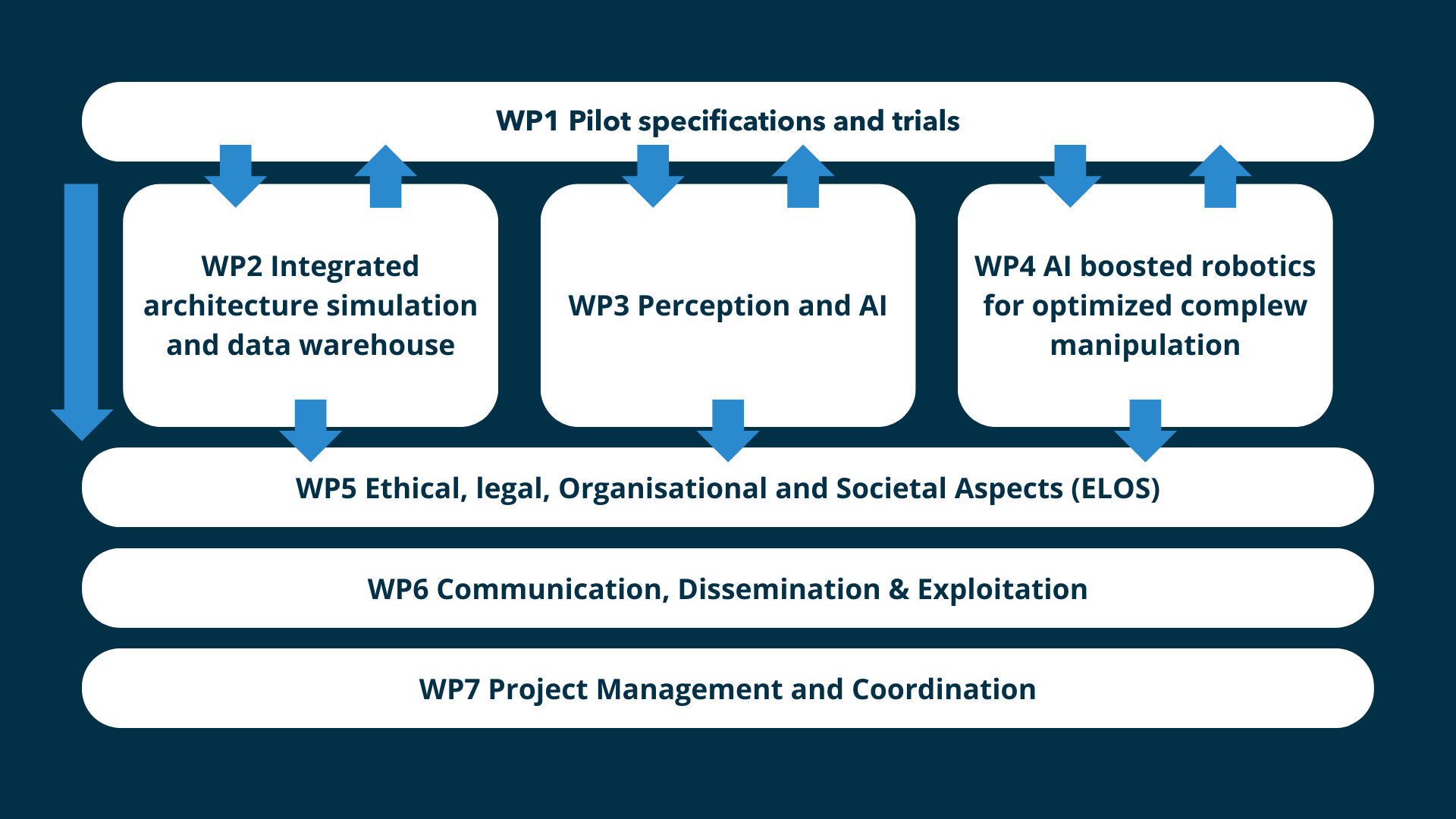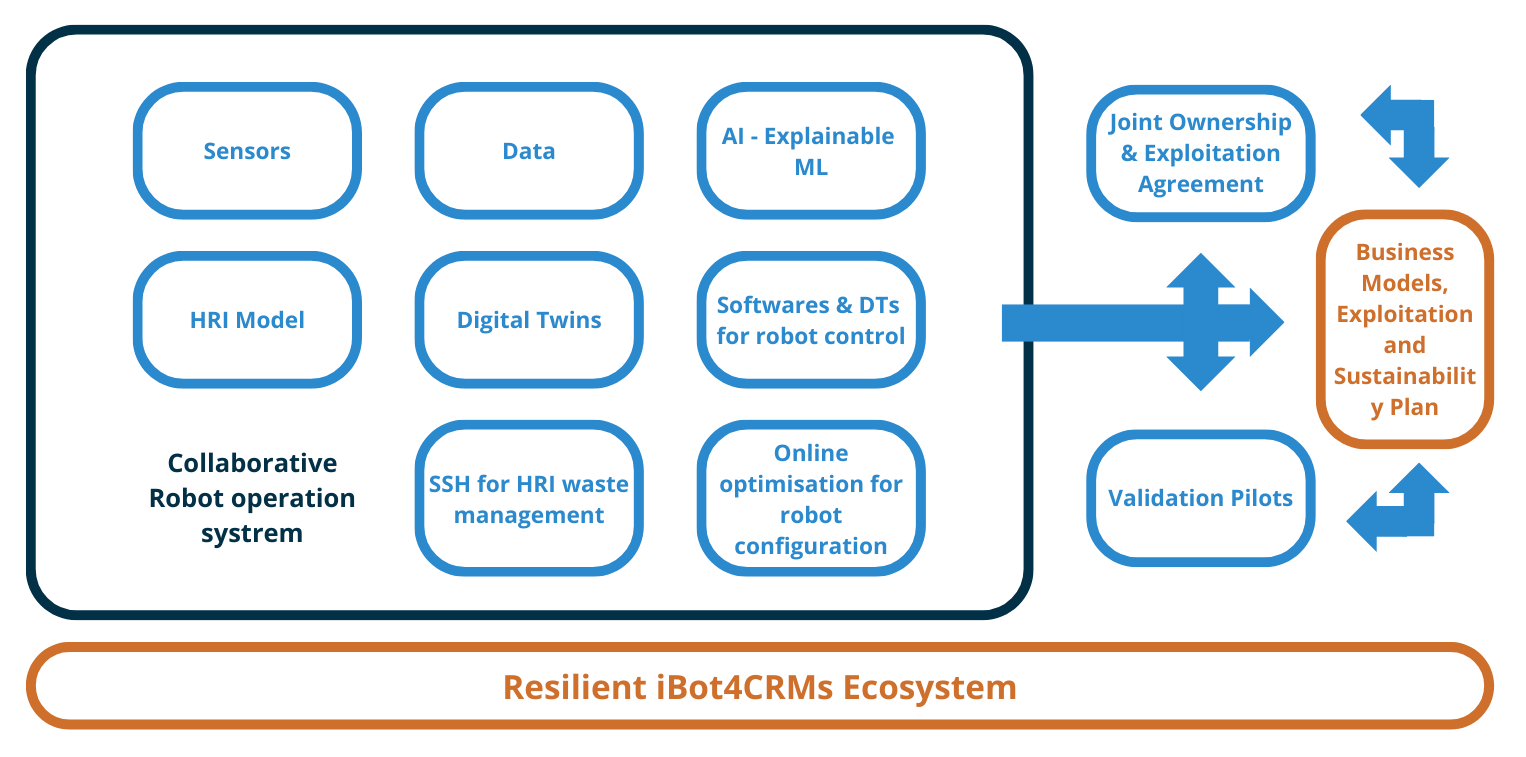About the Project
“AI-driven robotics to reduce Europe’s dependence on imported raw materials”
iBot4CRMs is developing integrated smart robotic systems to maximize the recovery and recycling of critical raw materials from urban waste. The project will build and validate scalable, integrated digital tools that make use of artificial intelligence in a human-centered collaborative approach.
By harnessing urban mining to supplement external sources, the project will strengthen Europe’s resilience and competitiveness in securing CRMs such as neodymium (for magnets), copper, gold, and silver. This initiative will play a key role in addressing the challenges outlined in the Critical Raw Materials Act and the European Green Deal.

Funded by the Horizon-Europe programme of the European Commission, a consortium of 18 partners (including two affiliated parties) led by the NORCE will provide operational solutions and decision-making tools.
Pilot Cases
iBot4CRMs will showcase a range of technologies and highlight the benefits of integrating AI, data analytics, and robotics into various recycling processes for Waste Electrical and Electronic Equipment (WEEE) and Electric Vehicles (EVs), through seven validation scenarios conducted across four large-scale pilot sites in Turkey, Greece, Spain and Portugal.
Work Packages
iBot4CRMs is a multidisciplinary project involving a diverse consortium of partners. It connects leading European institutes at the forefront of robotics and waste management, who will collaborate continuously throughout the project’s duration.

Project Solutions
iBot4CRMs is developing several technologies and assets to build a resilient ecosystem.

Project Contributions

In a nutshell

Consortium:
18 partner organizations
(including two affiliated parties)

Funding:
€ 9 558 276,25

Period:
1 Dec 2024 – 30 Nov 2028

Funded under:
Digital, Industry & Space
